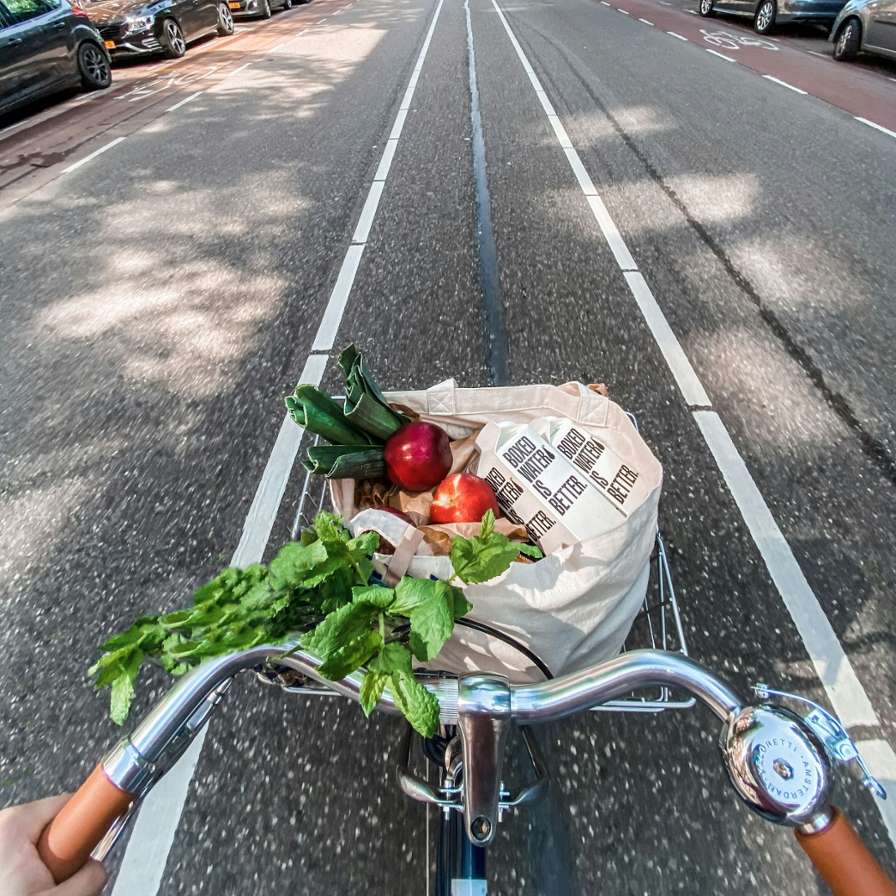How do we make the sustainable choice the easy choice?

Sustainable behaviour takes more than good intentions. We know what needs to be done, from collecting rainwater to reducing our meat consumption, but putting these things into practice can be challenging. Residents encounter barriers that municipalities do not always recognise. Therefore, the key question is: how do we bridge that gap?
That question was at the heart of the closing conference of the Duurzaam Duurzaam (‘Sustainably Sustainable’) project. The outcome was the Sustainable Intervention Guide, a tool that helps municipalities gain a clearer insight into what residents need and engage with them more effectively.
‘It’s a wonderful conclusion to an intensive and inspiring process,’ says Erik Kostelijk, Associate Professor of Marketing and one of the project’s contributors. ‘The Intervention Guide shows how behavioural science, municipal practice and co-creation reinforce each other. The four participating municipalities not only delivered valuable insights and demonstrated how the tool helps to encourage sustainable behaviour.’
What we learned about behaviour and sustainability
- Our food choices matter. Eating less meat, particularly beef, benefits both the climate and our health.
- Good intentions can fade in daily life. People want to live more sustainably, but habits and routines often get in the way.
- We lose motivation more easily than we realise. Many people experience climate paralysis, which is the feeling that the problem is too vast and complex to solve.
- Visibility helps. When people share their sustainable actions, sustainable behaviour becomes more normal and more appealing.
An example from Aalten: The downpipe
One of the four case studies in the Sustainably Sustainable project took place in Aalten and explored how rainwater downpipes could be disconnected so that rainwater would no longer flow directly into the sewer system.
The municipality initially assumed that offering a subsidy would motivate residents to take action. However, conversations with residents revealed that they needed practical help and guidance more than financial support. Consequently, the municipality decided against introducing a subsidy scheme, instead appointing a disconnection coach. This approach proved to be much better aligned with residents’ real needs.
How the Intervention Guide helps
The Intervention Guide supports municipalities by helping them to:
- Test their assumptions: Are we right about what residents need?
- Make barriers visible – what really holds people back?
- Adapt measures so they fit with everyday reality.
The result? Interventions with greater impact and residents who feel more involved.
'A big thank you to all partners, speakers and participants for your energy throughout the final event and the entire project. It has been a privilege to contribute,' says Erik Kostelijk.
What's next?
Sustainably Sustainable was a collaboration between Hanze University of Applied Sciences and Amsterdam University of Applied Sciences. It was supported by the municipalities of Almere, Groningen, Aalten and Assen. The project involved carrying out practical experiments on various sustainability themes, such as energy, mobility, water management and food. These insights have been translated into concrete policy recommendations and tools, including the Sustainable Intervention Guide.
The guide is now available to all municipalities in the Netherlands. In addition, a follow-up project, Duurzaam Doen (‘Sustainably Doing’), will begin early next year, with over ten municipalities already signed up to take part.